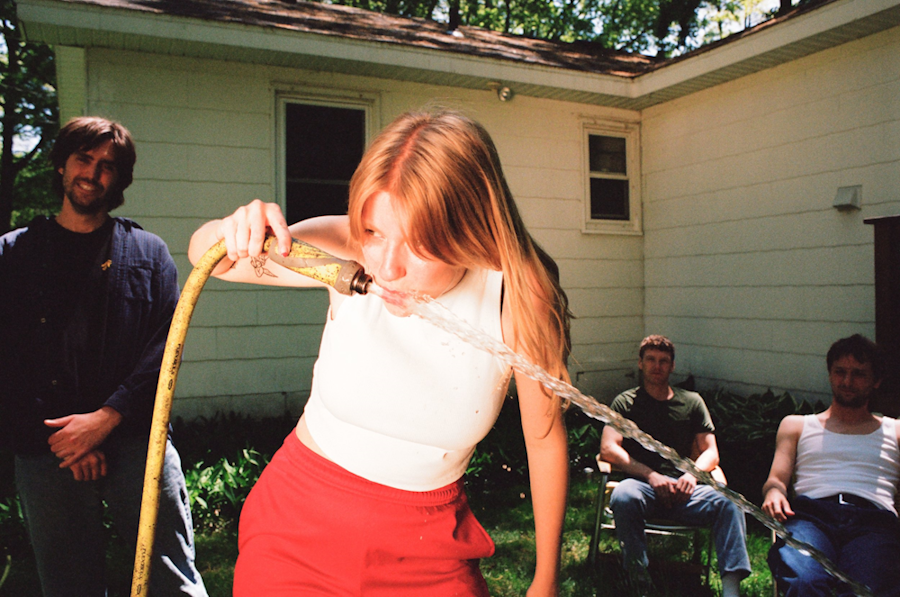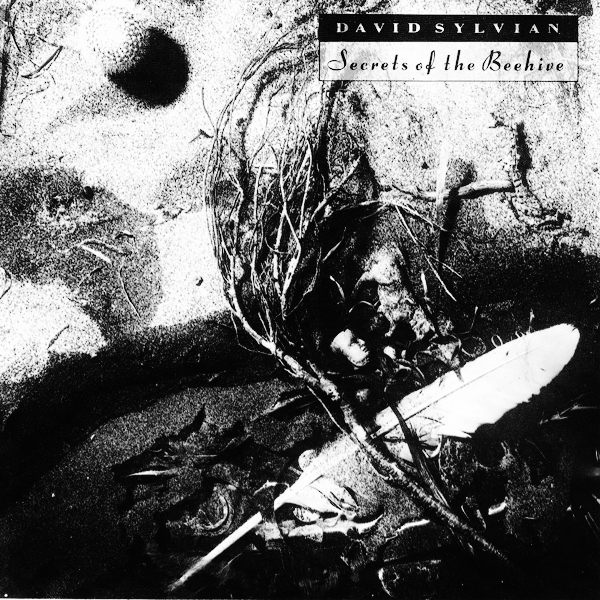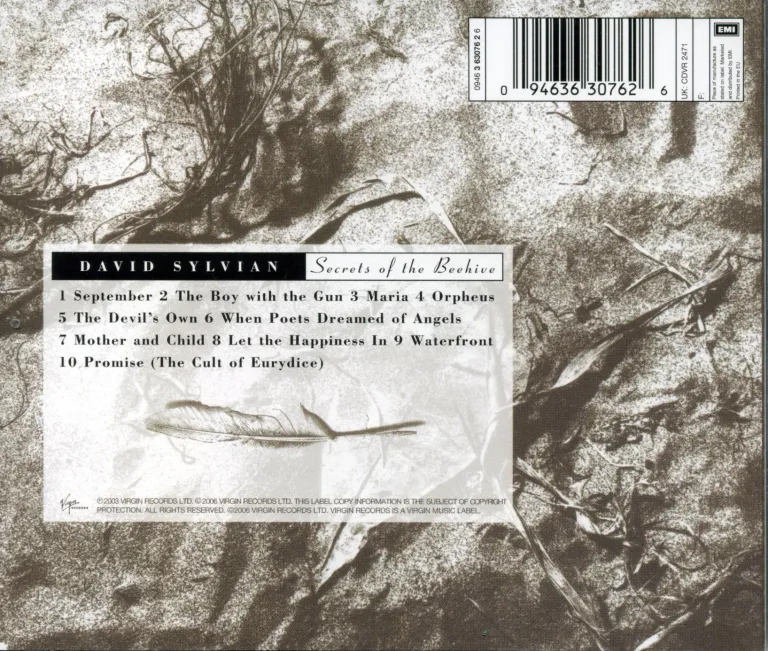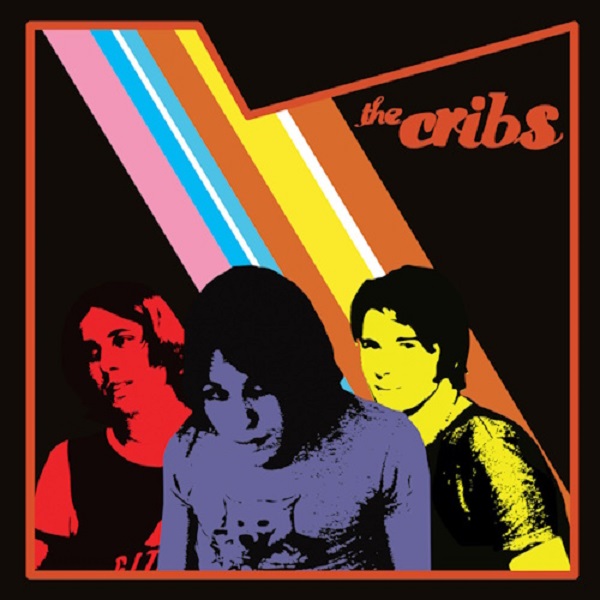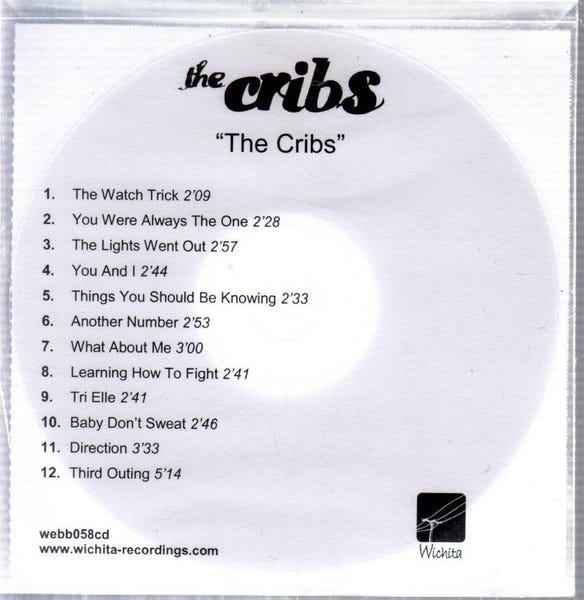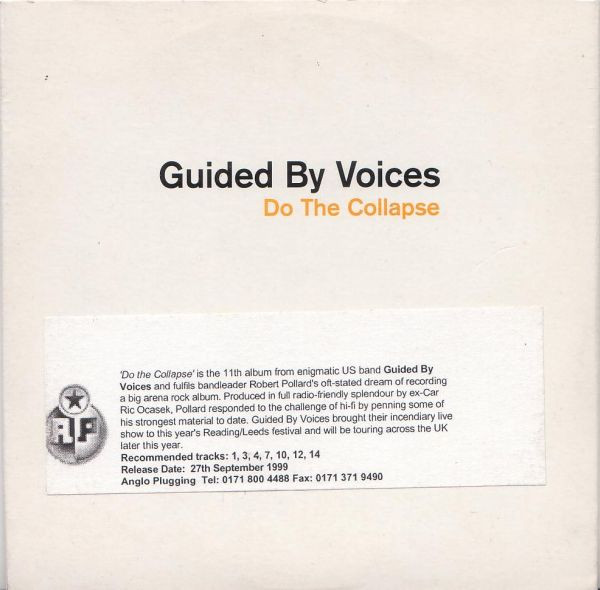Yard (2023), Slow Pulp
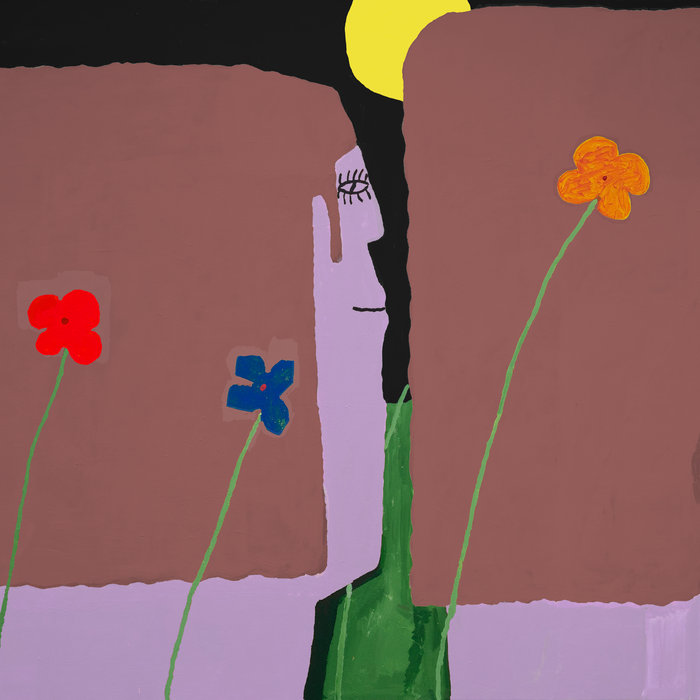
Spotify has its share of detractors and obvious problems around artist compensation, but I’ve come to realize that its “Autoplay similar content” feature is responsible for introducing me to massive musical multitudes within the last ten years. It was about a year ago when The Beth’s excellent 2022 album “Expert in a Dying Field” trailed off into Slow Pulp’s equally-excellent yet infinitely-understated depression ballad “Falling Apart,” a soft acoustic number sung in breathy tones, colored by a violin section that sounds like watching a sunset after climbing an apple tree at grandpa’s horse farm in South Georgia and your girlfriend just dumped you via text message. “Why don’t you go back to falling apart? You were so good at that,” Slow Pulp’s instant-crush Emily Massey sings in what I first believed was bitter condemnation of a past lover but slowly realized after repeated listening that it was actually a cutting criticism of herself.
“Falling Apart,” however, is almost nothing like The Beth’s “Expert in a Dying Field,” outside of the self-deprecating lyrical content and female vocalists. The Beth’s is largely distorted, fuzzy powerpop with obvious hooks, whereas Slow Pulp’s “Falling Apart” is a subdued, grows-on-you folk affair that, once grown, never ever goes away. That’s why it was curious to me why “Falling Apart” would autoplay here at all. I had to find out, so I listened to more of Slow Pulp’s discography and came to realize the eclecticism at play within the band’s music.
Slow Pulp’s signature sound is a cacophony of contradicting musical genres, including shoegaze, country, folk, and manufactured pop. You need only to browse Slow Pulp’s hand-selected Spotify playlist titled “movies” to get an idea of what to expect: Echo & the Bunnymen’s “The Killing Moon,” The Jesus and Mary Chain’s “Just Like Honey,” some Cat Stevens, and – uhh – Hillary Duff’s “Why Not” from the classic Disney Channel hit movie “The Lizzie McGuire Movie.” This combination of influences is a concoction of distortion pedals, acoustic lamentations, sugar, spice, and everything introspective; or, the formula for the Powerpuff Girls if the Powerpuff Girls were only Buttercup.
Full disclosure, I had only heard “Falling Apart,” a few tracks from their 2019 “Big Day” EP, and the single “Cramps” before the full release of “Yard.” Having an inclination for messy distorted powerpop, “Cramps,” with its fully-fuzzed-out wall of noise and dueling vocal harmonies, grabbed me immediately and had me hooked for weeks. The crunchiness of “Cramps” is some of the most crunchy I’ve heard since the 2007 release of “Dead Sound” by The Raveonettes, which, unsurprisingly, Slow Pulp occasionally sounds like except less The Jesus and Mary Chain carbon copy.
“Cramps” showcases Slow Pulp’s ability to lift elements from their influences without becoming cheap imitation.
In “Gone 2,” the first track of Slow Pulp’s 2023 album “Yard,” the band seems to be fully aware of my sole problem with the record, singing: “I know that you are impatient.” See, the problem with releasing an excellent single like “Cramps” and being a band that explores multiple styles is that I expected more “Cramps” and was annoyed when that was not the case. Instead, “Yard” is a challenging collection of 10 songs that resemble “Falling Apart.” It would be easy to say that they’re riding the coattails of their previous output.
But, like Emily sings: I am impatient.
So, I played “Yard” on repeat while building Gunpla models (a pairing I recommend, as it seems to naturally pan the musical gold from the figurative dirt), and something clicked: “Yard” isn’t a ride on the coattails; it’s a masterful weaving of those coattails. “Yard” furthers Slow Pulp’s craft of impeccable shoegaze-country genre weaving (hereby dubbed “countrygaze”) into a tapestry so layered that impatient-me couldn’t grasp it on the first go-around.
This countrygaze fusion is obvious from the first half of the record. “Gone 2” is a track driven by acoustic guitar that swells in countryside splendor from the very first bar, layered fingerpicking hiding behind a wall of sentimental strumming and hushed backing vocal hymns that are barely audible. Emily Massey sounds like an apostle of Liz Phair with far more emotive range, and that range is on full display here with impressively held “oohs” and “aahs” that give the track a forlorn sense of longing for a lost lover. The second track, “Doubt,” changes pace into something resembling the two Liz’s: the best bits of Liz Phair’s “Whip-Smart” and the bubblegum hooks of Lizzie McGuire’s “Hey You,” with a chorus of repeating the “do” in “doubt” that surpasses any so-called “hook” Disney channel ever produced. And then, of course, there’s “Cramps,” the crunch before the somber chugging and feedback loops found in “Slugs,” where Emily sings “you’re a summer hit,” a statement that would apply to this album if it were released 30 days earlier.
The first half closes out with the eponymous title track “Yard,” a piano ballad touching on suburban nostalgia that is a little too barren to be considered a complete song, the only true low-point on the record, which is unfortunate considering the vulnerable-relatability of its subject matter.
The second half of the album starts strong with “Carina Phone 1000,” a song about old friends calling out of the blue; a reminder that people hundreds of miles away may still be thinking about you. “Carina Phone 1000” exudes nostalgia not only for lost childhood companionship but for the ’90s in general, with its acoustic progression resembling the first few bars of Goo Goo Doll’s 1995 hit single “Name” or its spiritual successor, 1998’s “Iris.” Contrasting this somber nostalgia, “Worm” attempts to be side 2’s “Cramps,” a fuzzbox that fails to reach the heavenly levels of harmonious crunch of its predecessor.
“MUD” is the understated absolute-classic-masterpiece of the album; Slow Pulp’s magnum opus, creating the “countrygaze” genre all by itself with its southern state tapestry of slow acoustic strumming and backing electric guitar that picks all the right notes to create an ambiance of watching the flickering night sky before launching into outer space in a chorus exploding with crunchy fuzzy power. “MUD” takes off like the “astronaut that wants to get out of here,” the same astronaut Emily sings about in the verses leading up to the climactic chorus in which she accuses her lover of “not being where you’ve said you’ve been” but later admits that she has been doing the same thing.
“MUD” is pure, undistilled Slow Pulp and if you don’t like it then you won’t like the rest of the album.
“Broadview” is a turning point for our heroine, who can choose to stay inside or, instead, take a plunge into the unknown, mirroring a lazy afternoon in which two or three unseen emotional crises can’t help but bubble up within the idle mind. Emily Massey adopts a country-western twang to her voice during the quizzical chorus, like Jenny Lewis of Rilo Kiley but with the added sincerity of a heartattack. “Broadview” is a sequel to “Falling Apart” in tone and structure, furthering the country-stylings by adding harmonica and steel guitar into the mix, much the same way “Falling Apart” utilized violin to create a feeling of soberly roaming the countryside.
The album closes by extracting the sugar from the water with “Fishes,” a stripped down track driven only by acoustic fingerpicking and the occasional tapping of a piano key. This is the comedown after a hard night of partying, trying to process everything that happened. After all, sometimes it makes sense to take a step back and consider what the hell you’re doing with your life, and other times it makes sense to forget about it all and just sing-real-loud when no one’s around – Slow Pulp’s “Yard” lets you do both.
